Tax notice from the State of Washington
“I thought Washington didn’t have an income tax, but I received a tax notice from the state of Washington. What do I do now?”
The state of Washington doesn’t have an income tax. This is true for individuals or businesses. However, for persons and business entities, it does have a business and occupation (B&O) tax. There can also be a public utility tax. Effective in 2020, there are also some potential increases in the tax rates that can affect some taxpayers.
The B&O excise tax focuses on gross receipts, the rate of which will vary with the nature of the receipts subject to the tax.
There are various requirements that can subject you to registering with the Department of Revenue, such as gross income over $12,000 per year or having to pay taxes or fees to the Department of Revenue, or you are planning to hire employees.
If you are a business entity, such as a corporation or partnership, you need to file with Washington’s Secretary of State before filing a business license application.
In general, there are four major classifications that look to whether the taxpayer is in retailing, wholesaling, manufacturing, or services. The highest rate of tax is imposed on services. That rate is 1.5%. The other three common classifications are retailing, .471%; wholesaling, .484%; and manufacturing, .484%. But note there are about forty classifications. The tax has considerable complications.
There may be a particular category and tax rate that applies to your business, or there may also be multiple classifications applying to your business affairs.
The tax rates we note here may also be increased by recent developments called a “workforce education investment” surcharge used to fund higher education. For example, the 1.5% normal rate on service businesses may in some cases increase to around 1.8%.
The basic nature of the B&O tax is that it is imposed on gross receipts, so there are no deductions per se for salaries, materials, taxes and the like. However, there are certain deductions and credits that may be allowed. Deductions reduce the tax base whereas credits reduce the tax.
The state of Washington has strict rules focusing on just when a return is filed so as to avoid penalty. The general rule is a late payment of the tax triggers a 9% penalty, with late penalties in the following months of 19% and 29%.
Penalty abatement focuses on the rather narrow exception of the cause being beyond the taxpayer’s control. If in the prior 24 months, the taxpayer has been timely, the authorities may waive the penalty even if circumstances are not considered beyond the taxpayer’s control.
There are various other penalties, some quite severe, found in Washington’s provisions. Following is a partial list of penalties: late payment, being an unregistered taxpayer, assessing a tax that is substantially underpaid, issuing a warrant (not a lien) to collect an unpaid tax, disregard of written instructions, evasion, misuse of a resale certificate, and failure to remit sales tax.
The penalty abatement rules list as unsatisfactory arguments for abatement of the penalties for such reasons as misunderstanding, financial hardship, and, generally, mistakes by employees. The penalty abatement request and rationale for waiving the penalty for late payment are generally submitted with the late return.
Some businesses may qualify for some deferral of payment due to the current coronavirus pandemic in 2020.
If you’re unable to pay your liability, it may be possible to enter into a payment plan via the local field office. The state warns that this may entail a lien, and a financial statement is to be completed to support the taxpayer’s requested payment.
